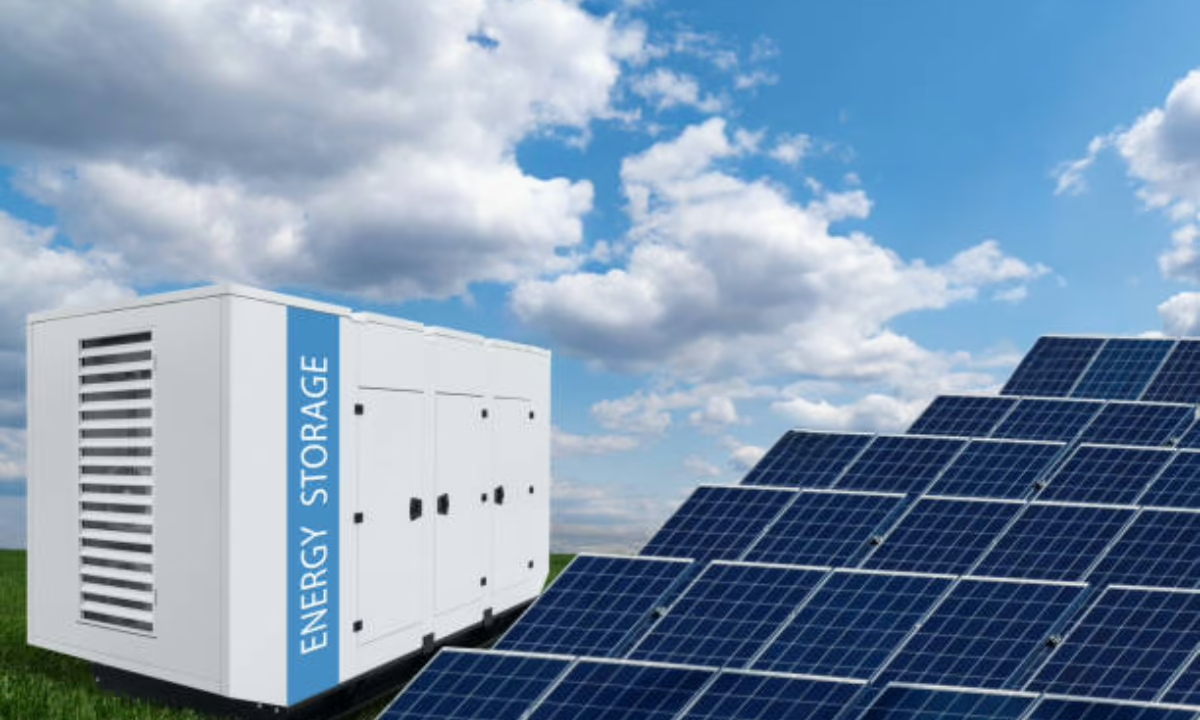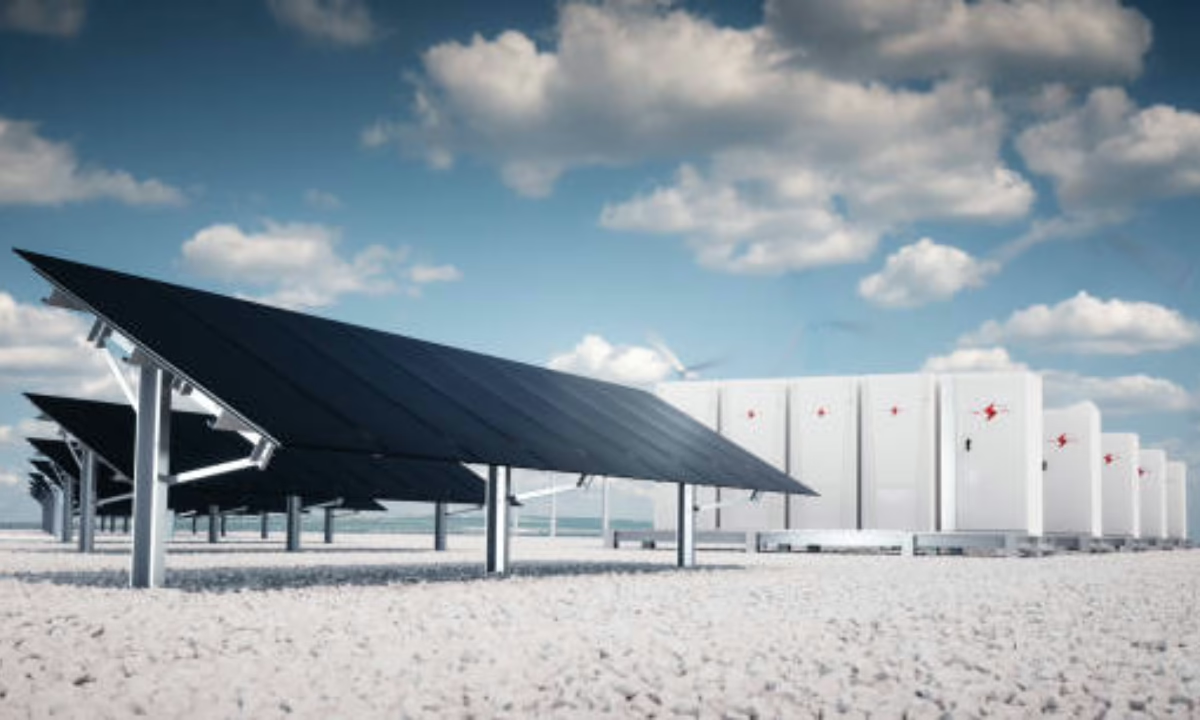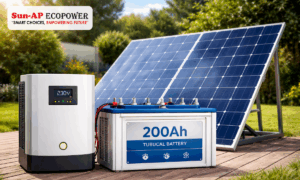As solar energy continues to power homes and businesses across the globe, more individuals are embracing the concept of storing solar power in batteries to ensure energy availability even during non-sunny hours. A reliable battery is essential for enhancing the efficiency and reliability of a solar panel system, enabling users to consume stored energy at night or during grid outages. Choosing the right battery involves understanding your energy needs, usage patterns, and the characteristics of different battery technologies.
Why Storing Solar Power in Batteries Matters

Storing solar power in batteries enables energy independence and reduces reliance on the traditional power grid. It ensures an uninterrupted power supply, maximizes the return on your solar investment, and offers greater control over when and how energy is used. For regions with unstable grid supply or high electricity tariffs, battery storage is not just a convenience—it’s a necessity.
Key Factors to Consider Before Buying a Solar Battery
When selecting a battery for your solar panels, it’s important to weigh several factors that directly influence system performance, lifespan, and cost-efficiency.
1. Battery Capacity
Measured in kilowatt-hours (kWh), capacity determines how much electricity a battery can store. The higher the capacity, the more energy you can store for later use. Your ideal capacity depends on your household’s daily energy consumption and the size of your solar setup.
2. Depth of Discharge (DoD)
DoD refers to how much of the battery’s capacity can be used without damaging its lifespan. A higher DoD means you can use more of the battery’s stored energy. Look for batteries with a DoD of 80% or more for maximum usability.
3. Round-Trip Efficiency
This measures how much energy can be retrieved from a battery compared to how much is stored. High round-trip efficiency results in less energy loss and better system performance.
4. Battery Lifespan and Warranty
Battery life is commonly measured in cycles or years. Most modern solar batteries come with warranties ranging from 5 to 15 years. A longer warranty is generally a sign of better build quality and durability.
5. Compatibility with Solar Inverters
Not all batteries are compatible with every inverter. Ensure that the battery you choose works seamlessly with your existing inverter or that you plan for a hybrid inverter if needed.
Lithium-Ion Batteries vs Other Battery Types
Among various options, lithium-ion batteries are currently the most preferred for storing solar power in batteries due to their high energy density, efficiency, and compact size.
Lithium-Ion Batteries
- Offer a higher depth of discharge.
- Have a longer cycle life.
- They are more compact and lighter.
- Require less maintenance.
Other Battery Options
Lead-acid batteries, including flooded and AGM types, are more affordable but come with trade-offs in terms of efficiency, space, and maintenance. They also have a shorter lifespan and lower DoD.
Understanding Battery Technologies for Solar Systems
Selecting the right battery technology involves evaluating your budget, performance expectations, and available space. Solar batteries need to withstand repeated charging and discharging while maintaining performance over the years.
Each battery chemistry reacts differently under various temperature conditions, discharge rates, and cycle patterns. Homeowners aiming for long-term, low-maintenance solutions often opt for lithium-ion batteries, while some commercial installations might still use lead-acid options due to upfront cost considerations.
Battery Sizing for Optimal Storage
Battery size must align with the capacity of your solar panels and your energy consumption needs. Oversizing or under sizing the battery can lead to inefficiencies and higher costs.
Calculate your daily power usage and match it with a battery bank that can cover at least one to two days of power without recharge. Consider seasonal fluctuations in sunlight availability when determining storage needs.
Charge Controllers and Battery Management Systems (BMS)
Modern solar batteries are equipped with built-in Battery Management Systems (BMS) to regulate charge levels, prevent overcharging, and optimize battery health. When selecting a battery, verify that its BMS is compatible with your solar controller or inverter system.
Installation Considerations
Battery installation should comply with safety standards, be housed in a ventilated environment, and be easily accessible for maintenance. Choose batteries that come with easy installation options and a reliable support network.
Working with Trusted Solar Panel Distributors in India
To ensure long-term performance and safety, work with recognized solar panel distributors in India who offer certified battery storage options. Quality distributors not only supply premium products but also guide installation, maintenance, and upgrades.
Off-grid vs Hybrid Setups
Whether your solar system is off-grid or hybrid significantly impacts the type and number of batteries you need. Hybrid systems benefit from grid support, allowing you to use stored energy strategically during peak hours or outages. Off-grid systems rely entirely on batteries, necessitating higher capacity and advanced energy management.
Scalability and Future Expansion
Always factor in potential future expansion when investing in solar batteries. Choose systems that allow you to scale up easily if your power needs increase or if you decide to install additional solar panels.
Total Cost of Ownership (TCO)
Beyond the initial purchase price, consider the total cost of ownership, which includes efficiency, lifespan, maintenance, and replacement costs. High-efficiency lithium-ion batteries might cost more upfront but offer better returns over time.
Conclusion
The importance of storing solar power in batteries continues to grow as more users adopt clean energy solutions. Choosing the right battery requires careful analysis of capacity, discharge cycles, efficiency, and compatibility with your solar panels. Technologies like lithium-ion batteries offer long-term performance and convenience, making them a preferred choice among today’s energy consumers.
Before making a purchase, consult experienced solar panel distributors in India to receive accurate recommendations tailored to your system and location.
Sunap Ecopower, a trusted name in the renewable energy space, delivers dependable solar energy solutions, including efficient battery storage systems, supporting sustainable and smart energy adoption.




